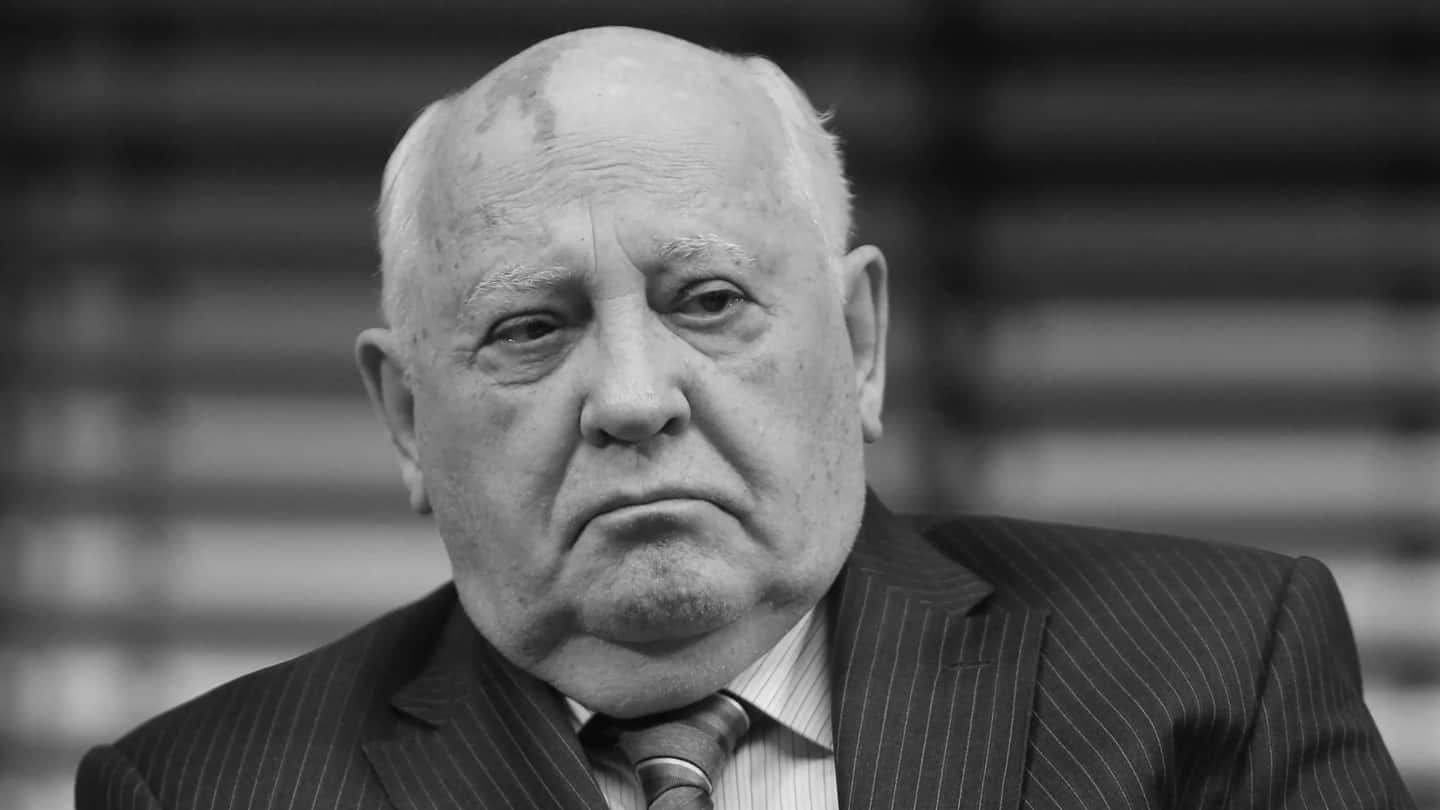
Ex-Soviet President Mikhail Gorbachev, who ended cold war, no more
What's the story
Mikhail Gorbachev, the Soviet Union's last premier, died on Tuesday aged 91 after a long and serious illness, said the Central Clinical Hospital in Moscow.
Gorbachev headed the Soviet Union from 1985 until his resignation and the bloc's subsequent break-up in 1991, paving the way for the end of the Cold War, and the independence of 15 countries in eastern Europe and central Asia.
Context
Why does this story matter?
His death comes as Russia continues its offensive in Ukraine threatening its independence — which could be attributed to Gorbachev.
The tensions between Moscow and the West since the Russia-Ukraine crisis could be seen in the light of Gorbachev's push for cordial relations with the West.
Following fresh sanctions on Moscow, threats of a new Cold War flew from both Russia and the West.
Details
He was awarded the Nobel Peace Prize in 1990
According to his will, he will be buried in Moscow's Novodevichy Cemetery next to his wife Raisa, who passed away in 1999.
He became the general secretary of the Soviet Communist Party in 1985 and introduced political and economic liberal reforms.
He helped bring down the Iron Curtain in Germany in 1989 and was subsequently conferred with the Nobel Peace Prize in 1990.
Putin
Putin expresses grief over Gorbachev passing away
Russia's President Vladimir Putin expressed grief over Gorbachev passing away. He said a condolence message will be sent to Gorbachev's family and friends.
In 2018, Putin had said that he would undo the fall of the Soviet Union if he could.
In 2005, he had termed the event as the "greatest geopolitical catastrophe" of the 20th Century.
Twitter Post
EU Commission's President Leyen pays tribute
Mikhail Gorbachev was a trusted and respected leader. He played a crucial role to end the Cold War and bring down the Iron Curtain. It opened the way for a free Europe.
— Ursula von der Leyen (@vonderleyen) August 30, 2022
This legacy is one we will not forget.
R.I.P Mikhail Gorbachev
Legacy
One man's hero, another man's villain
Public sentiment regarding Gorbachev has remained divided. He is hailed as a harbinger of peace by the Western powers and many in Russia.
But many hold him responsible for the collapse of the Soviet Union and the renunciation of the global leader's role that Russia had.
He is said to have refrained from suppressing dissent when pro-democracy protests erupted in the satellite republics.